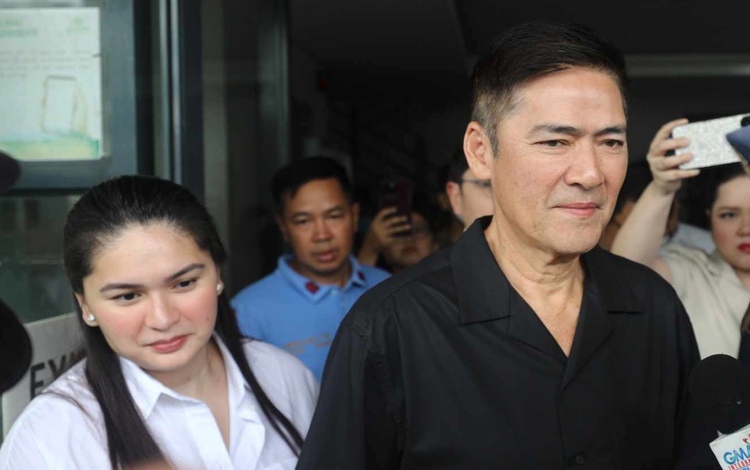Pauleen Luna-Sotto has spoken out following the Muntinlupa Regional Trial Court’s decision on the writ of habeas data filed by her husband, Vic Sotto, against filmmaker Darryl Yap. The court partially ruled in Sotto’s favor, ordering Yap to remove a 26-second teaser video for his upcoming film, The Rapists of Pepsi Paloma, from all online platforms.

The teaser allegedly ties Vic Sotto to the late actress Pepsi Paloma, who in the 1980s accused Sotto and others of assault. The case, however, was dismissed decades ago. Vic Sotto argued that the teaser was misleading as it omitted this key context, resulting in public misconceptions and threats to him and his family. In response, he filed 19 counts of cyber libel against Yap, asserting that the posts accompanying the teaser were defamatory.
Standing firmly by her husband, Luna-Sotto expressed concern over the harmful nature of some online content. She urged netizens to exercise responsibility and integrity when sharing information. “Please, let us all be mindful and responsible about posting or sharing malicious content about people,” she said in a public statement.
The legal actions initiated by Vic Sotto aim to address the unauthorized use of personal information and prevent the spread of false narratives. Atty. Enrique Dela Cruz, representing Sotto, highlighted that each defamatory post constitutes a separate count of cyber libel, underscoring the gravity of the situation. The court’s decision reflects an acknowledgment of the potential harm such content can inflict.
This case underscores the tension between creative freedom and individual rights. While filmmakers have the right to explore historical narratives, they bear a responsibility to ensure their work does not perpetuate misinformation or cause undue harm.
Luna-Sotto’s plea serves as a powerful reminder of the ethical responsibilities tied to digital communication. In today’s fast-paced online environment, her message encourages critical thinking and respect for others, fostering a more informed and considerate community.
As the proceedings unfold, this case may set a precedent for addressing the intersection of creative expression and personal rights, emphasizing the importance of truth and accountability in storytelling.
